Best Carrier Oils For Sensitive & Acne-Prone Skin
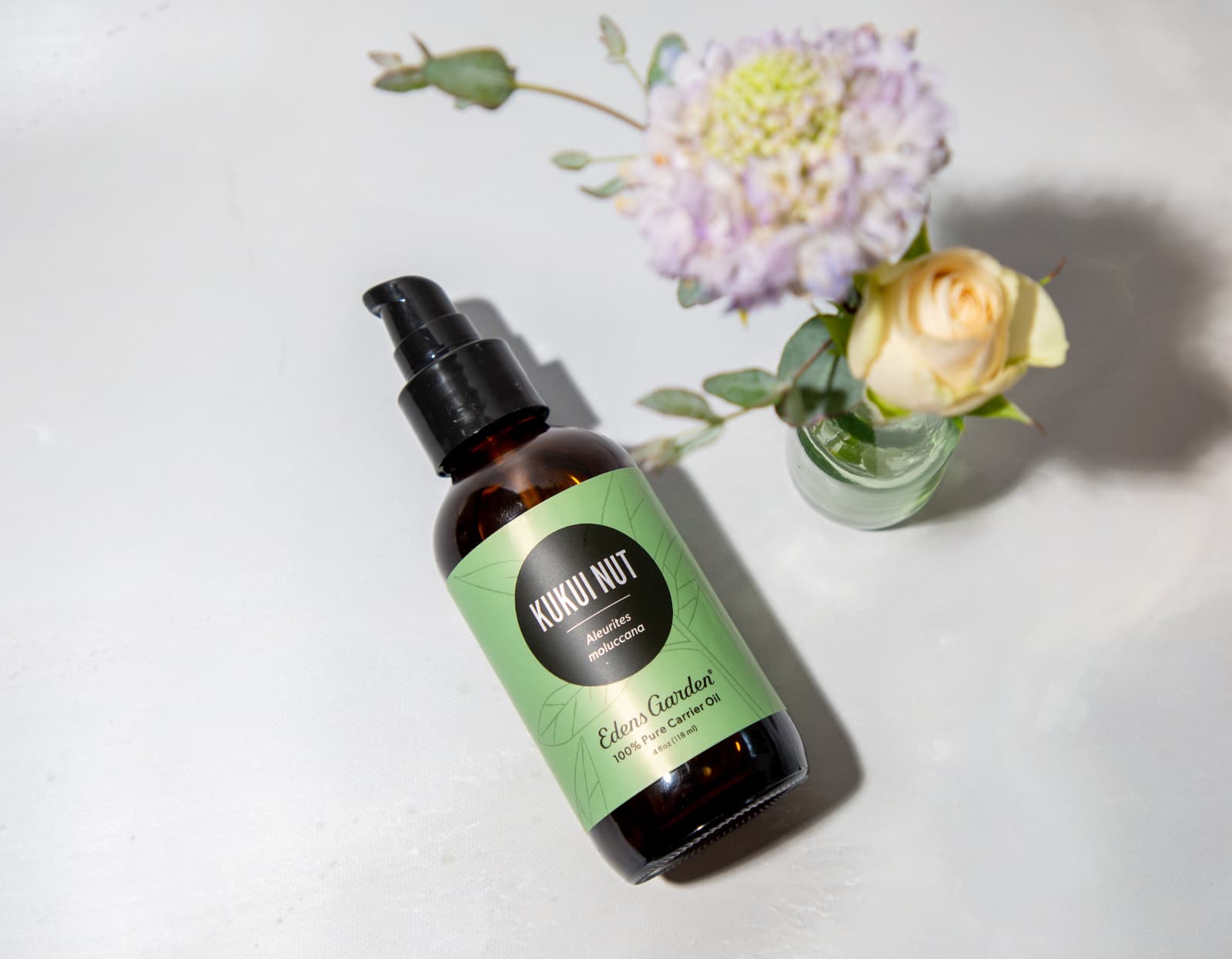
We all want nourished, healthy-looking skin. But for some, finding the right skincare ingredients is a difficult task when your skin is sensitive, acne-prone and seemingly non-cooperative. Luckily, some carrier oils have the ability to heal and nourish skin without irritating or worsening your skin.
Showing your skin some extra TLC may be easier than you think. Read on to discover the best carrier oils for sensitive and acne prone skin and how they can boost your routine.
How Can Carrier Oils Benefit Your Skin?
There’s a reason carrier oils have skyrocketed in popularity in recent years. Also known as beauty oils or facial oils, studies show that carrier oils contain a plethora of skincare benefits.
Anti-Inflammatory
Skin inflammation can be caused by a variety of factors such as UV exposure, pollution, diet and more. As our body’s barrier, the skin may become inflamed when exposed to these stimuli, as well when it becomes injured or damaged. Chronic skin inflammation can also lead to issues such as atopic dermatitis and psoriasis.
Luckily, polyunsaturated fatty acids found in carrier oils have been shown to be anti-inflammatory when applied topically. Linoleic acid is one such essential fatty acid found in abundance in oils such as Walnut, Pumpkin Seed, Kukui Nut and many more. One study revealed that a deficiency in linoleic acid was linked to scaly skin disorder and a decline in skin moisture.
How do you know if you have skin inflammation? You may have skin inflammation if you experience redness, itching, blemishes, irritation or sensitivity.
Healing
Many carrier oils have been found to be wound healing. When a product is wound healing, it means that it assists with one or more of the following physiological processes after the skin is wounded:
- Hemostasis: Clotting around the wound to prevent further bleeding.
- Inflammation: An immune response that assists cleaning and repairing the area of injury.
- Proliferation: The wound is rebuilt using new skin tissue.
- Tissue Remodeling: The wound closes as collagen fibers link.
Carrier oils that are wound healing often have the ability to heal skin quickly while also repairing damage from scarring and blemishes.
Two fatty acids that are often touted as being wound healing are oleic acid and lauric acid. Three oils containing a significant amount of these components include Oat, Moringa and Shea Nut.
Mature Skin
There are two ways to categorize skin aging– chronological and environmental. Chronological skin aging refers to physiological processes that occur as we age. Namely a decrease in cellular replacement and impaired skin cell remodeling. Environmental skin aging refers to stimuli causing oxidative damage to the skin.
These stimuli include:
- UV rays
- Pollution
- Smoke
- Changes in temperature
Signs of skin aging include:
- Wrinkling
- Roughness
- Loss of elasticity
- Thinning
- Increased dryness
Antioxidant enzymes in the skin have the ability to reduce oxidative damage caused by environmental stimuli unless overwhelmed, especially in the case of UV exposure. Topical antioxidants such as nourishing carrier oils may be able to boost the skin’s antioxidant levels, therefore preventing skin aging.
Certain carrier oils may also improve the skin’s barrier, further preventing skin aging. Oils that have been found to reduce the appearance of aging include Sunflower oil, Grapeseed oil, Coconut oil, Sesame oil, Jojoba oil, Rosehip Seed oil, Olive oil and Sweet Almond oil.
Moisturizing
If you’ve ever applied carrier oil to your skin, you know how soft and silky your skin can feel afterwards. That’s because many carrier oils act as an occlusive, meaning they lock in your skin’s natural moisture and other skin care ingredients, thus preventing trans-epidermal water loss (TEWL).
A lack of moisture can also indicate poor skin barrier function, thus making your skin more susceptible to issues such as aging, inflammation, damage and more.
Top moisturizing carrier oils include Apricot Kernel oil, Castor oil, Avocado oil, Kukui Nut oil and Oat oil.
Which Carrier Oils Are Best For Acne And Sensitive Skin?
Let’s start by addressing a myth–using oils on your face does not cause acne. In fact, many people with acne-prone skin also suffer from dry skin. For these reasons, more dermatologists and skin experts today are recommending the use of facial oil because of their many benefits.
Still, for those with sensitive, acne-prone skin, it may be difficult to narrow down which product will react well with your skin. That’s why we’ve compiled a list of our favorite gentle, yet highly effective carrier oils to suit your unique skin type.
-
Argan Oil: Highly acclaimed Argan oil can often be found in the aisles of your favorite beauty store, and that’s because of its many nourishing, yet gentle benefits. Beneficial to both skin and hair, Argan oil is rich in vitamin E making it moisturizing, rejuvenating to damaged skin and protective to the skin’s barrier. Argan oil is light, silky, non comedogenic and easily absorbs into the skin making it ideal for oily skin.
-
Baobab Oil: Deeply nourishing and wound healing, Baobab oil is often picked by aromatherapists for more serious skin issues such as eczema, psoriasis, dermatitis, scars, wounds and more. Its gentle nature allows Baobab to nourish skin while also being compatible with skin that is sensitive. With an abundance of vitamin C, omega-3 and antioxidants, Baobab is a superior choice for chronic acne and acne scars.
-
Hemp Seed Oil: High in several vitamins as well as antioxidants, Hemp Seed is praised for its ability to reduce the appearance of acne and eczema. Hemp Seed also penetrates the skin efficiently and mimics the skin’s natural sebum, allowing it to work and heal skin faster. Its anti-inflammatory benefits and rich emollient qualities also lend Hemp Seed to promote clearer, glowing skin.
-
Kukui Nut Oil: Rich in linoleic and oleic acid, Kukui Nut oil is both anti-inflammatory and wound healing. Kukui Nut helps to restore skin back to homeostasis when acne and blemishes strike. Along with healing acne, Kukui Nut helps to heal sunburns, stretch marks and cellulite. Its fast-absorbing and light nature makes Kukui Nut a good choice for those with oily and combination skin.
-
Oat Oil: Just as oat baths are known to alleviate itchy, irritated skin, Oat oil can be used in the same way thanks to its abundance of soothing ceramides, antioxidants and vitamin E. Oat oil further helps to firm skin, reducing the appearance of large pores, fine lines and wrinkles. Its gentle nature makes Oat a top contender as an oil for sensitive skin as it works to heal redness and damage caused by acne.
-
Rosehip Oil: A championship-caliber oil, renowned for its ability to effectively beautify skin, Rosehip oil is a powerhouse for your skin. Packed with therapeutic qualities, Rosehip oil might be best known for its ability to reduce the appearance of skin aging and stretch marks, but it also happens to be a wonder oil for acne and sensitive skin. Soothing and softening, Rosehip covers a multitude of skin condition making it an EG go-to.
Creating A Winning Skincare Routine
When it comes to sensitive, acne-prone skin, it’s important to learn what jives with your skin and what doesn’t. This is difficult to do when using skincare products with a plethora of ingredients. So unless your dermatologist or a doctor prescribes you a topical product with a laundry list of ingredients, remember that less is more and stick to simple products. Because not only will you be able to determine more easily which ingredients upset or improve your skin, you’re also less likely to have upset skin.
With that said, here are a few steps you might try to incorporate in your skincare regimen to create a winning routine:
-
Cleanse: Cleansing helps to remove dirt, debris, excess oils, makeup and more, but it’s important to not overdo it. Try opting for a gentle cleanser such as micellar water and one that doesn’t include an exfoliant, as this can irritate sensitive skin.
-
Sunscreen: To prevent photoaging, skin cancer and to protect your skin to the fullest, applying a sunscreen is vital. By protecting your skin with a sunscreen, you can effectively avoid further irritating sensitive skin and worsening your acne.
-
Acne Treatment: Ingredients such as salicylic acid and benzoyl peroxide are often recommended by dermatologists to treat acne. If you’re looking for a natural alternative, give our DIY Essential Oil Acne-Clearing Roll-On a try.
-
Moisturize: Apply a light lotion and carrier oil as the last step in your routine to effectively moisturize, prevent TEWL and lock in the previous skincare ingredients.
Need more assistance picking out the carrier oil that’s right for your routine? We would love to help you–let us know in the comments below!
Grab The Essentials Here:
Leave a comment (Comments will be approved before showing up)
9 comments
Kristina
Hello! I’m 46 yrs old with acne prone, dry-ish skin and diagnosed with ezema since moving to CO. I have dry eye lids & dark circles under my eyes.
What carrier oils do you recommend? Should I use a different one for under eyes & lids? Can I omit facial cream/lotions if using a carrier oil? If not, what order do I apply carrier oil, cream & sunscreen?
Thank you!
The care cave
Didn’t know that there are all these choices when it comes to carrier oils! Such a valuable piece of blog I read today.
Edens Garden
Hi Vanessa! You can try some of the suggestions herein this article. I would suggest starting with an oil such as Oat after consulting with your dermatologist. Please note that we do not recommend substituting doctor-prescribed medications without your doctor’s permission.
Vanessa Williams
Recently my dermatologist diagnosed me as having rosacea on most of my face. I have been using a steroid cream for about a year before I finally went to her. She prescribed Rhofade and in two days my face was broken out, red, inflamed, oozing and flaky. I stopped that cream and went back to the steroid. I don’t want to use it but don’t know what else to do. Do you have suggestions? I have sensitive skin Also I tried rose hip oil years ago and had a reaction.
Edens Garden
Hi Sarah! For your daughter, we suggest starting with Baobab and the acne clearing roll-on DIY above. You may also want to check to make sure her current skincare products are serving her skin and not further aggravating it.
Edens Garden
Hi Stacy! We recommend starting with Oat oil. You may also want to do a knock out test with your current skincare products–using one skincare product at a time for a few days to a week and observing how your skin reacts to ensure they’re not aggravating your skin. Lastly, you may want to try the acne clearing roll-on DIY we linked to above.
Sarah Johns
My 13 yr old daughter suffers from acne. We are vegan so no dairy to remove, but she does swim competitively year round so lots of chlorine on her skin. What oil would you suggest she add to her skin care routine?
Stacy
I have pretty oily skin & get 2-3 “regular”, large blemishes a week. I occasionally get the deep, hard, unpoppable kind (cystic?), too. It doesn’t matter if I pop them or not, because I wind up with dark spots that last for months.
I wouldn’t say my skin sensitive though. I manually (gently) exfoliate just about every day when washing my face, use a toner afterwards, & use The Body Shops’ Tea Tree Oil on the blemishes. I found that Indian Healing Clay masks (twice a week with ACV) have helped clear up my skin, but it’s left so dry afterwards.
Given all that, what would be the best carrier oil for me? Also, what EO, if any, do you recommend adding to the oil?
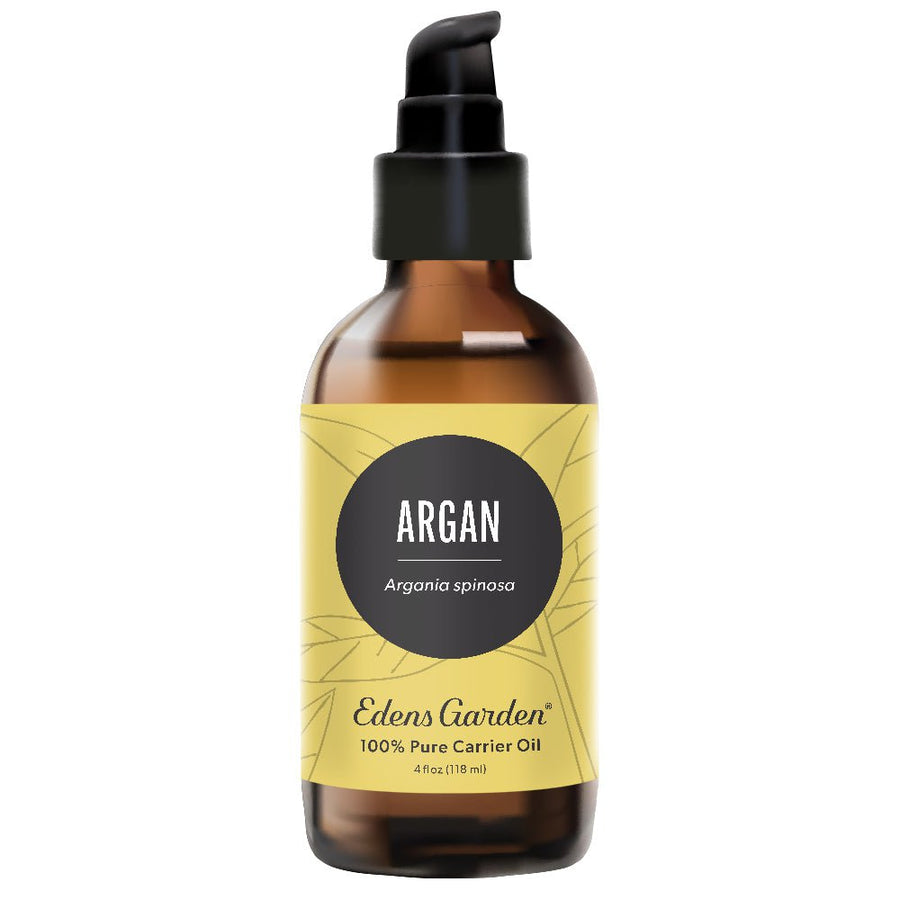
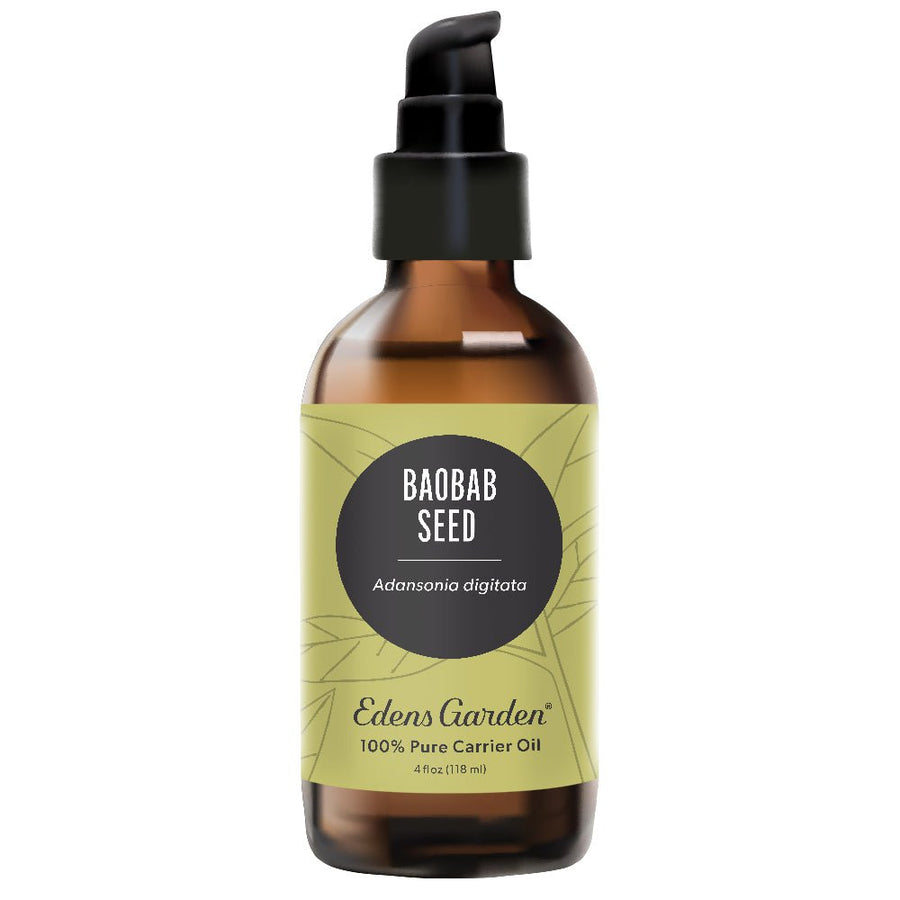
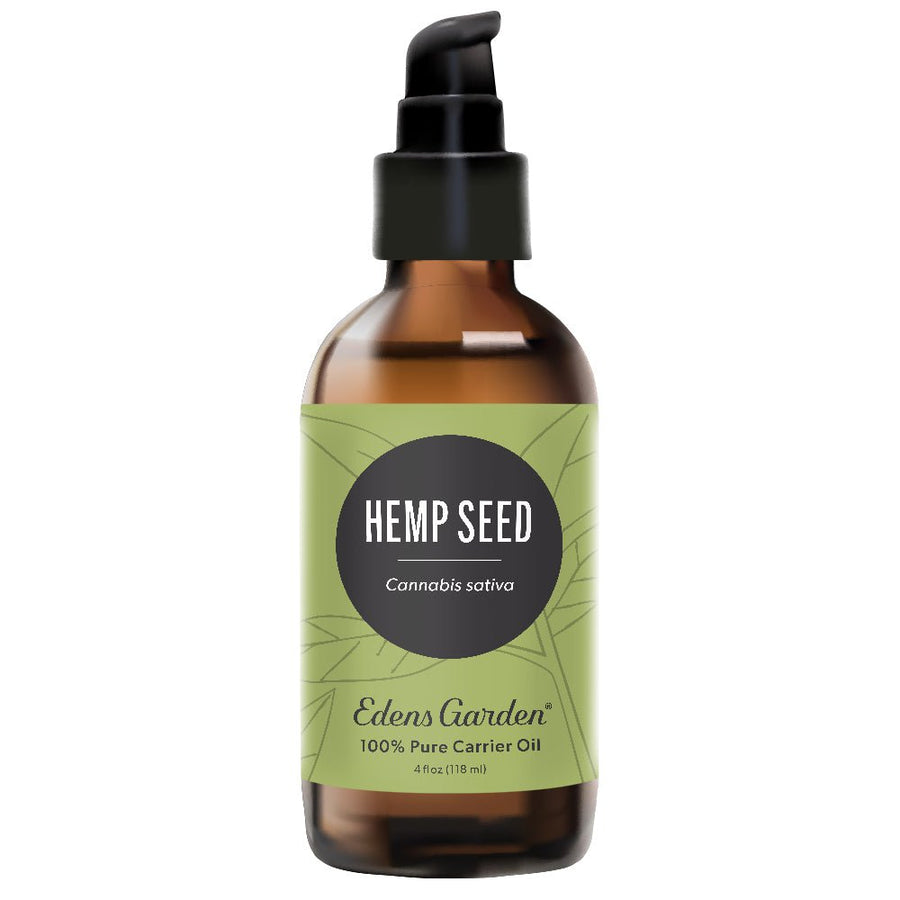
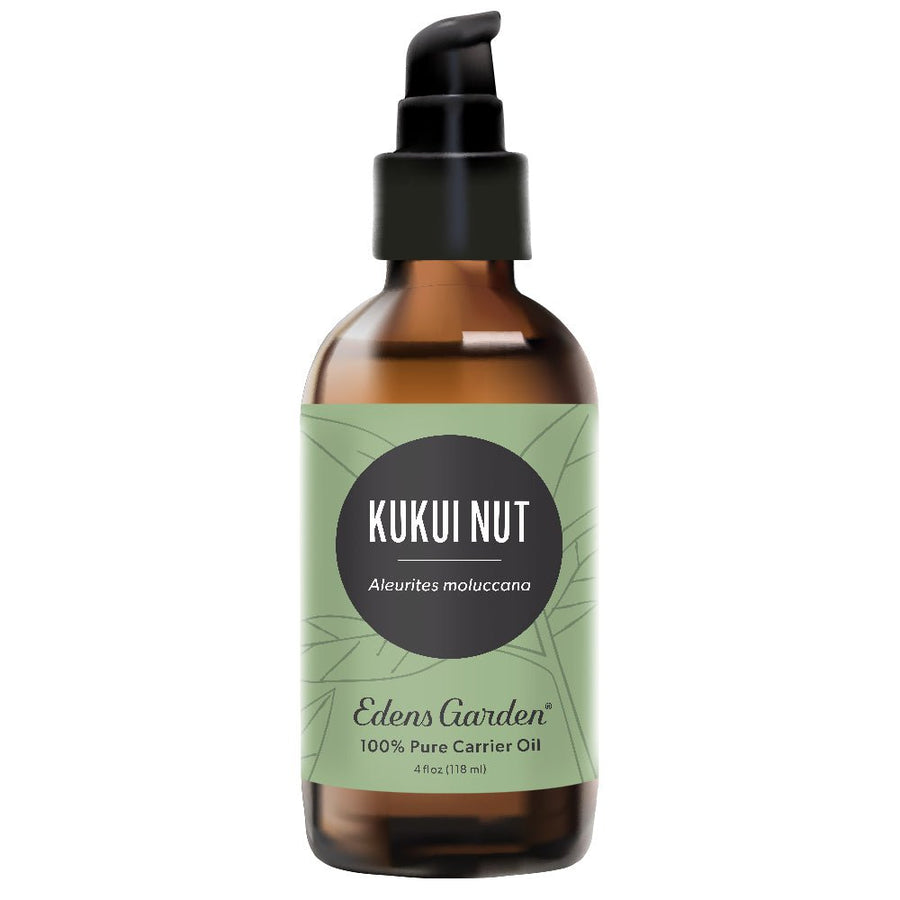
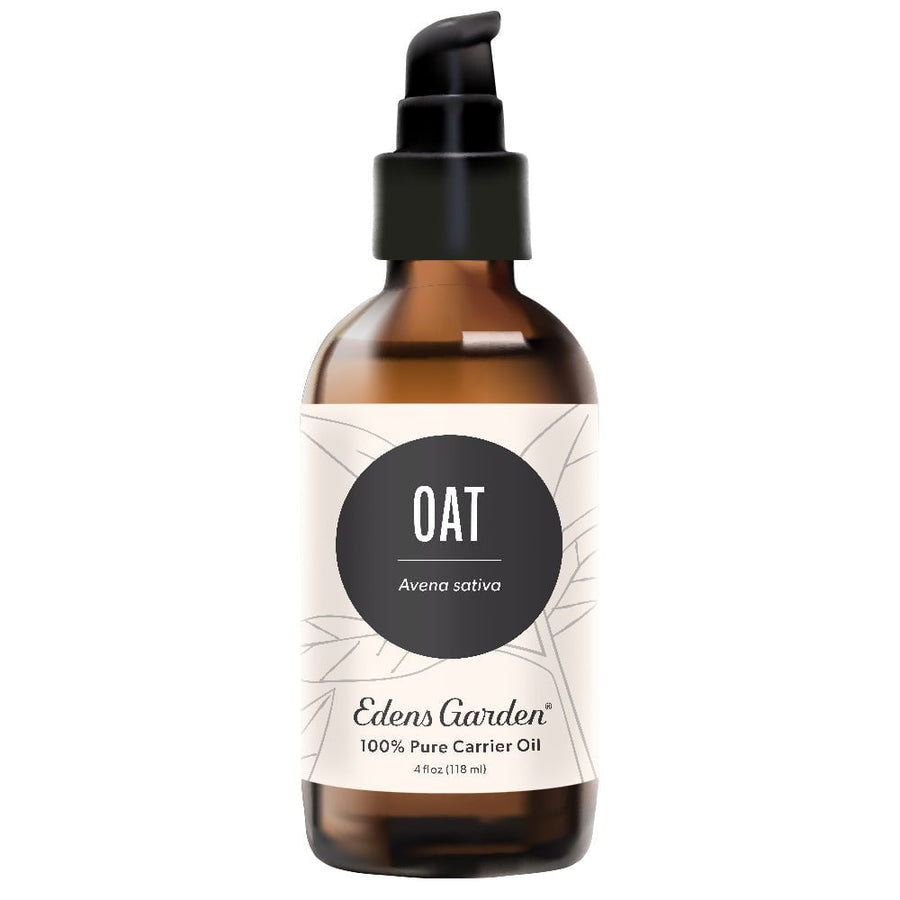
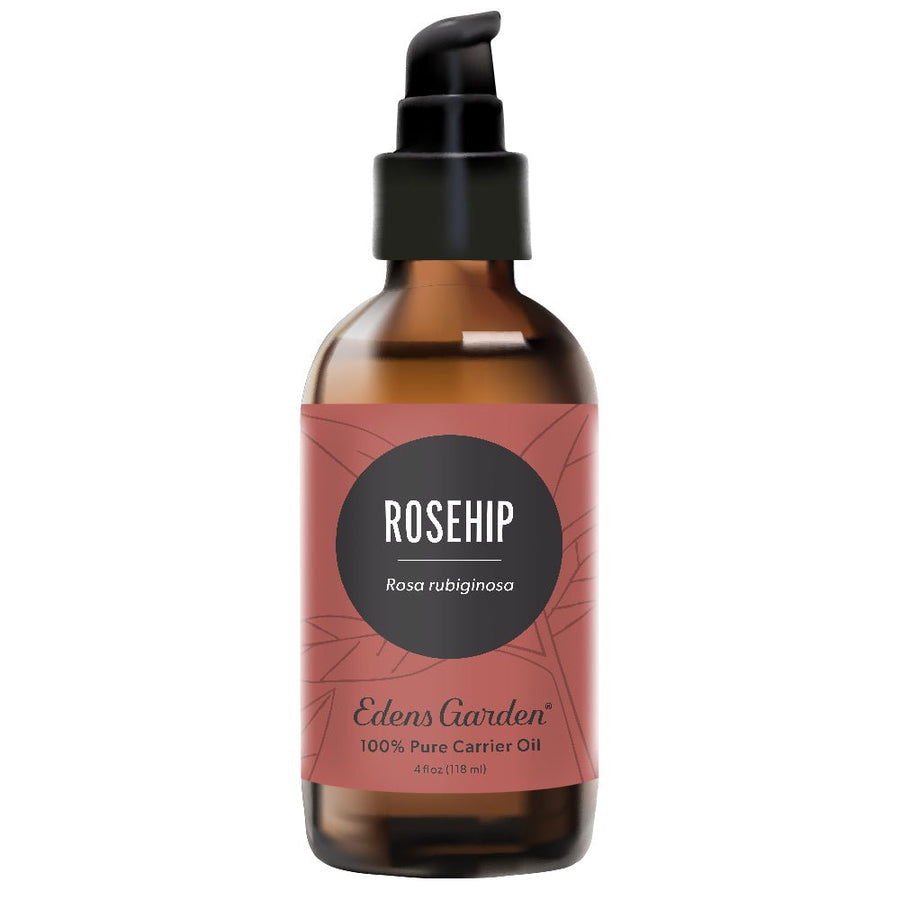




Edens Garden
March 19, 2024 at 1:16 pm
Hi Kristina! I would start with Oat or Shea Nut oil. Because eczema-prone skin requires a lot of moisture, it’s best you continue using an additional moisturizer and always use sunscreen. You can apply your cream/moisturizer first, then carrier oil, and sunscreen last. Allow a little time for each product to absorb before applying the next.